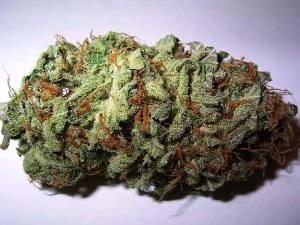 It’s natural to wonder whether marijuana can potentially kill you, especially if you are among the many people just starting to consider medical use. Indeed, the fog of doom and gloom that has so effectively been cast around the topic of Cannabis would scare any prospective user. But what’s the reality?
It’s natural to wonder whether marijuana can potentially kill you, especially if you are among the many people just starting to consider medical use. Indeed, the fog of doom and gloom that has so effectively been cast around the topic of Cannabis would scare any prospective user. But what’s the reality?
Can marijuana kill you?
While one could theoretically overdose on just about anything consumed in obscene quantities, there appears to be not one single legitimate marijuana overdose death whatsoever, with reports putting the required lethal limit at more than 20,000 – 40,000 times the amount of THC of your typical joint!
Compare this to the thousands that die every year from alcohol and prescription drugs. Specifically, according to the National Vital Statistics Reports, 25,692 people died from alcohol-related causes and 40,393 individuals were killed by drug poisoning from both illicit and prescription drugs in 2010 alone. These numbers should be, no pun intended, sobering.
Of course, science doesn’t have all of the answers, nor can it guarantee 100% safety, but this applies to just about anything we consume or apply to our bodies. Indeed, the risks stemming from the chemical medley that we subject ourselves to daily, thanks to big pharma, is far more serious. Further, this involves many concoctions that the FDA has supposedly blessed for everyday use.
For example, why is the US still permitting the use of the anti-bacterial compound triclosan in toothpaste (among other personal items) when it has long been demonstrated to cause cancer and fetal deformations in animal studies? In this case, the apparent lack of human testing confirming the harmful effects of triclosan have created some type of plausible deniability in the agency – in essence, because no data exists that necessarily establishes that the same effects on humans, it’s presumably OK. This is remarkable. If anything, the presentation of these ills in animal subjects suggests strongly the same thing is likely to happen in humans; this is why other nations have banned it already or are contemplating doing so.
Ironically, while the FDA has sought fit to accept no information as conclusive information regarding the safety of a chemical with a disturbing track record in animal studies, it has taken a completely contrary approach to marijuana, and despite the compelling evidence that it is by and large innocuous. This is politics folks.
True, there is much to learn about all the various compounds contained in marijuana, and their mode of operation. But what natural supplement does this not apply to? Further, the evidence regarding cannabis and THC is overwhelmingly positive so far, with recent studies showing that it harbors many salutary properties, including exciting anti-cancer properties.
Yes, clearly there is enough evidence to suggest that we should still tread lightly with regard to adolescent use. But compared to alcohol and illicit and prescription drugs, marijuana is not much concern at all here either. In fact, poor diet and the ubiquity of fast food and sugar-laden soft drinks is a much bigger problem for the long term health and welfare of adolescents, and people of all ages for that matter. Should we enact federal legislation to ban McDonalds and Coca-Cola?
Many want you to believe that marijuana overdose is common
As with most things, the “smoke” surrounding the issue of marijuana use and safety can only begin to clear when people start educating themselves. This necessarily includes putting aside irrational “moral” beliefs and the politically-motivated propaganda that has been so prevalent around the web and throughout the media. In case it’s not already obvious, there are many politically-powerful groups that want to keep the failed war on marijuana waging because they stand to benefit from all of the tax dollars allocated to this fruitless exercise. These are the same groups that will profit from fear-mongering and misinformation. Don’t be their tool.
So the question remains, can you overdose on marijuana? It would seem exceedingly unlikely – at least compared to alcohol, illicit and prescription drugs, cosmetics, processed foods and super-sized sodas.
Featured image credit:
By Hupu2 under CC-BY-SA-3.0, via Wikimedia Commons







